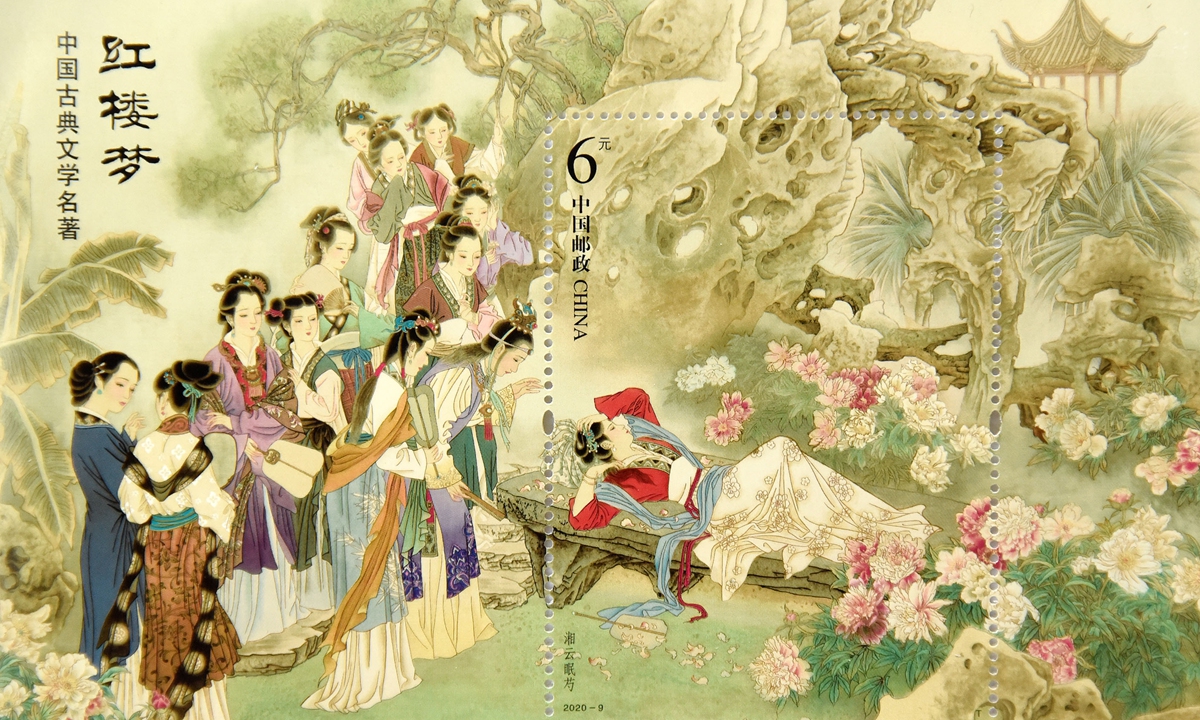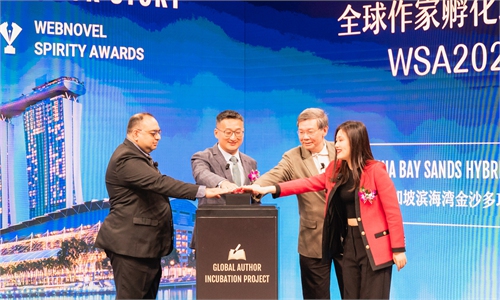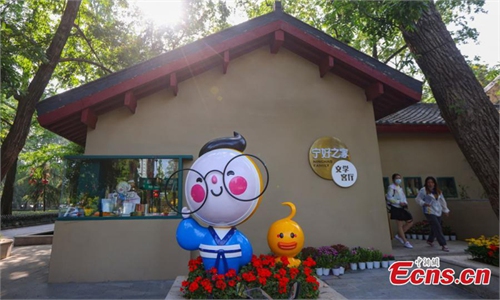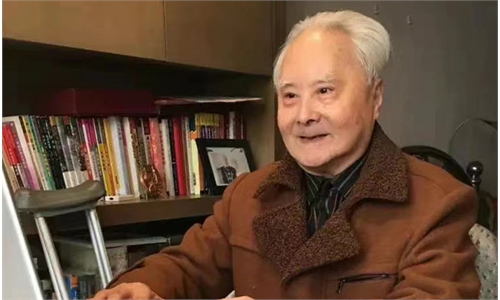ARTS / CULTURE & LEISURE
Literature records a China the world must know
Interview with sinologist Martin Woesler

Martin Woesler Photo: Courtesy of Martin Woesler

A stamp depicting a scene from the novel Dream of the Red Chamber Photo: IC
While translating Cao Xueqin's Dream of the Red Chamber, The True Story Of A Q by Chinese writer Lu Xun and other profoundly influential classic Chinese literary works, German sinologist Martin Woesler gained a deep interest in contemporary Chinese novels and established a friendly relationship with Jia Pingwa, one of the biggest names in contemporary Chinese literature.In other interviews, Woesler has highly praised classic and modern Chinese literature. But at the same time, today's more structured society backed by high technology and science has allowed people to indulge in the comforts of modern times, leading to contemporary writers somehow lacking the same in-depth exploration of life seen from previous Chinese literati. Woesler said that one of the reasons why modern Chinese literature (1840-1949) has attracted him is that many works have strong regional characteristics, whereas contemporary Chinese literature (1950-present) writers should undertake the responsibility to maintain these distinctive characteristics.
In this interview, Woesler discusses the differences between Chinese and Western translation, and talks about visits he has paid to contemporary Chinese authors. Woesler noted that reading contemporary works allows readers to get to know the author's ideas and is an indispensable opportunity to understand China.
GT: Using Dream of the Red Chamber as an example, how can translators overcome the cultural gap in the translation of ancient Chinese works?
Martin Woesler: The Dream of the Red Chamber is a treasure of traditional Chinese culture. Many culture loaded words and cultural goods need explanations to be understood by German readers. Also some plants described in the novel are not so common in Europe. In Europe, the trees who keep their needle like green leaves even during the winter, are "conifers," with the "pine" as the most common sort. In China, the Platycladus Orientalis, is seen more often. Both trees belong to the "coniferous" trees, the most obvious difference is that the leaves are thin almost like needles in Europe, but larger in China. However, when translating the conifer with Platycladus Orientalis, European readers will always think of an exotic environment. This translation strategy is called "foreignization." In the original, mentioning the "conifer" was mainly to create an impression of evergreen trees common in the Qing Dynasty (1644-1911.) Therefore, it is considerable to translate Platycladus Orientalis as "conifer," a strategy called "localization." This makes sure that the European reader is not misled and does not pay attention to unwanted details, but can follow the story line. Other cultural references need to be explained in their social-historical context.
GT: Do you visit the local region before translating a novel that is particularly regionalized?
Martin Woesler: Although there are also good translations by translators who have not visited the original sites, I think it is very important that translators deeply immerses themselves into the social-historical situation of the original. I met Jia Pingwa on September 21, 2014 in Xi'an, Northwest China's Shaanxi Province, and he showed me his home full of regional artifacts like wooden taotie (an ancient mythological beast) masks, and explained the regional cultural roots of these artifacts to me.
I have also heard from a lot of Chinese colleagues who study foreign authors that they visit the places of their works and their graves to get an impression of the atmosphere. And a lot of actors dive into the life of the historical characters they are acting.
I also visited some Chinese novelists like Wang Meng in 1992 and several times later in Germany and at Harvard University. Back to 2009, I spoke with (Chinese writer) Han Han on the phone. I read his blogs, watched his films and TV series when I translated three of his novels. In this phone interview, I also introduced Han Han's interview to German readers in the most important German newspaper Frankfurter Allgemeine. Also in 2009, I met (Chinese writer) Mo Yan in Frankfurt three years before he was awarded the Nobel Prize (in Literature). I published an interview with him and introduced him to more German readers. All of these were only a tiny mosaic part of his promotion to be awarded the prize. And I met Yu Hua in Beijing and was impressed that this great author treated his translators without any airs and graces, but as equals.
GT: Literature is an important part of cultural exchange. Is it possible to break down the perceived bias between the East and the West through literary translation?
Martin Woesler: Literature is an important point of exchange of lives. When you dive deep into a piece of Chinese literature, you even switch lives with a Chinese protagonist. What else is a better way to overcome prejudices than to be a part of another society and culture?
Not everybody has the means and time to travel to understand different cultures. Especially during the pandemic, we can instead watch a documentary or read a book. If no education tells you that you are different, you start from the common things. Watched from space, the Earth seems one, with no borders.



